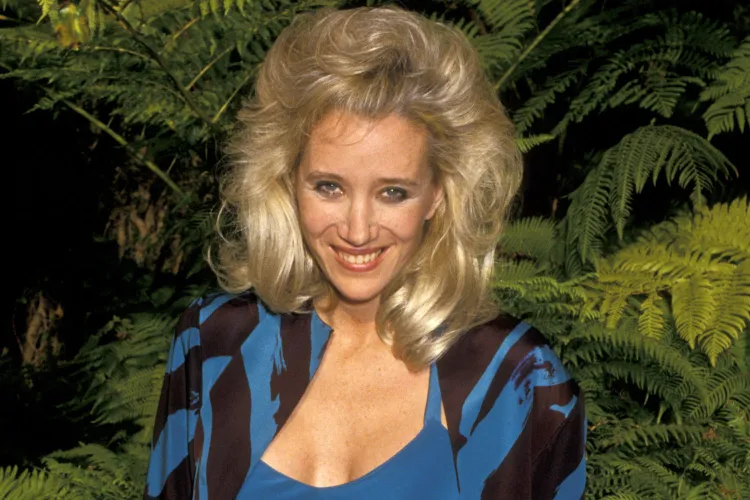Oscar-Nominated Actress Sally Kirkland, Known for Her Fierce Spirit and Groundbreaking Career, Dies at 84
Hollywood is mourning the loss of one of its most daring and original performers. Sally Kirkland, the Oscar-nominated actress who carved her own fearless path through the industry with raw emotion and relentless passion, has died at the age of 84. Her death marks the end of a remarkable life lived unapologetically — one defined by resilience, artistic rebellion, and a lifelong devotion to her craft.
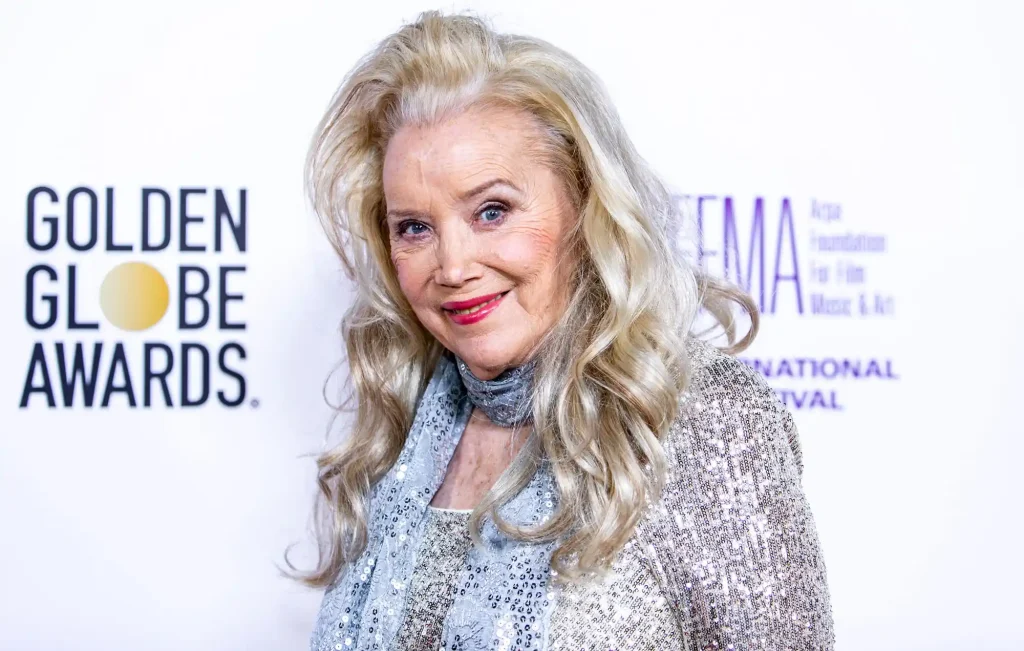
Kirkland’s journey was unlike anyone else’s in Hollywood. Born on October 31, 1939, in New York City, she was raised in a creative home that would shape her identity from the start. Her mother, Sally Kirkland Sr., was a fashion editor for Vogue, immersing her daughter in a world of glamour and art. Yet while young Sally inherited an appreciation for beauty and style, she also developed an instinct for the deeper, messier truths that lie beneath it — an instinct that would later define her acting.
Her early years were a mix of ambition and struggle. After briefly attending the American Academy of Dramatic Arts, she began performing in off-Broadway productions and soon found herself drawn to New York’s burgeoning avant-garde theater scene. There, she became part of the countercultural movement of the 1960s, performing in experimental plays and art installations that defied convention.
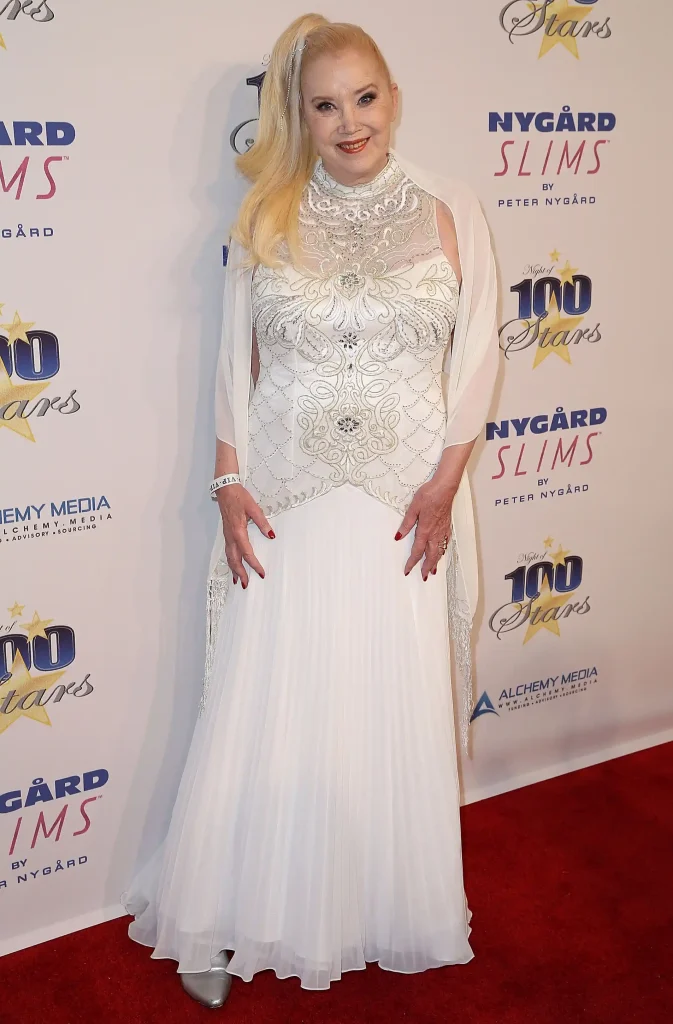
But while her peers often conformed to Hollywood’s expectations, Kirkland refused to fit into any mold. She was fearless about vulnerability — both emotional and physical — and in the early days of her career, that boldness sometimes cost her opportunities. Casting directors didn’t always know what to do with a woman who wasn’t afraid to take risks or speak her mind. Yet those who worked with her never forgot her intensity.
Her persistence began paying off in the 1970s when she landed supporting roles in films like The Sting (1973), The Way We Were (1973), and A Star Is Born (1976). Though her screen time was limited, Kirkland brought an unmistakable presence to every scene — the kind that made even a brief appearance linger in the memory. Still, Hollywood recognition came slowly. For years, she remained on the margins, admired by fellow actors but underappreciated by mainstream audiences.
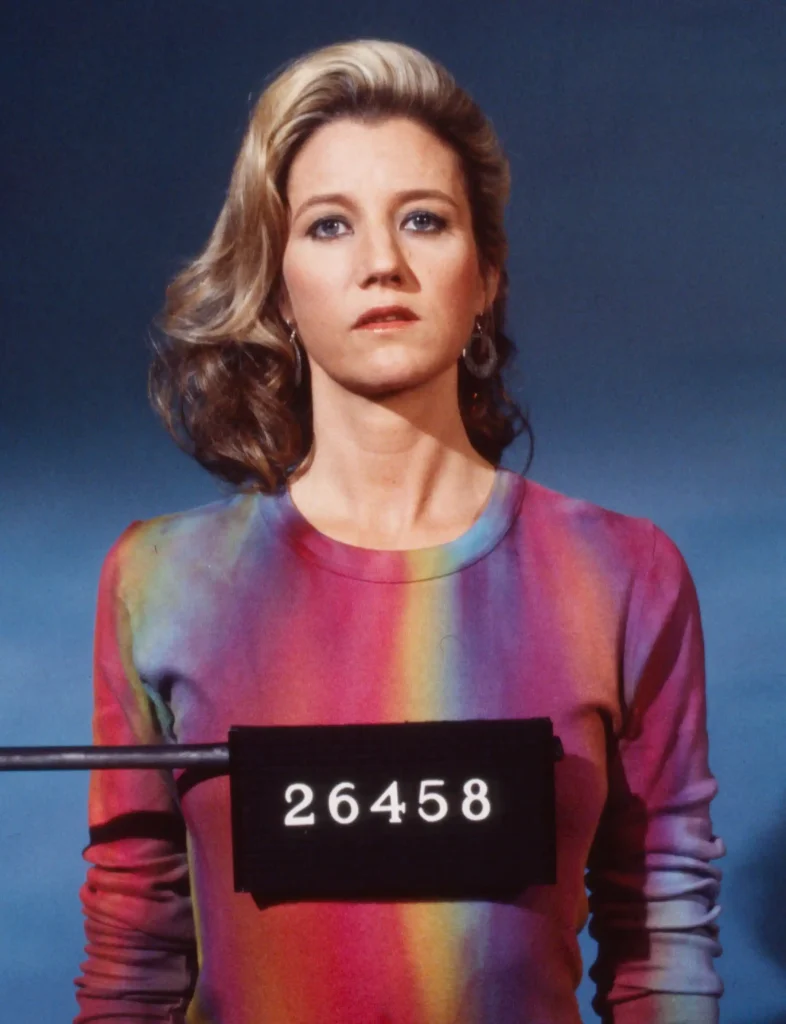
Everything changed in 1987 with Anna, the small independent film that would forever define her legacy. The movie told the story of a Czech actress struggling to rebuild her career after defecting to the United States. It was a role that demanded every ounce of emotion, discipline, and authenticity an actor could give — and Kirkland delivered a performance that critics described as electric, heartbreaking, and transcendent.
In a cinematic landscape dominated by polished stars, Sally Kirkland’s performance in Anna felt startlingly real. She infused the character with a mix of pain and pride, vulnerability and defiance, drawing from her own years of struggle as an artist who refused to compromise. Her portrayal earned her the Golden Globe Award for Best Actress in a Drama and an Academy Award nomination for Best Actress — an extraordinary feat for a low-budget indie film that had almost no marketing.
But perhaps what made her Oscar run even more remarkable was how it happened. Without the backing of a major studio campaign, Kirkland launched her own grassroots effort to be recognized, personally calling critics and attending events to promote the film. It was a one-woman campaign driven by faith in her work and an unyielding belief that great art deserved to be seen. That grit became part of her legend — a testament to her independent spirit in an industry that often rewards conformity.
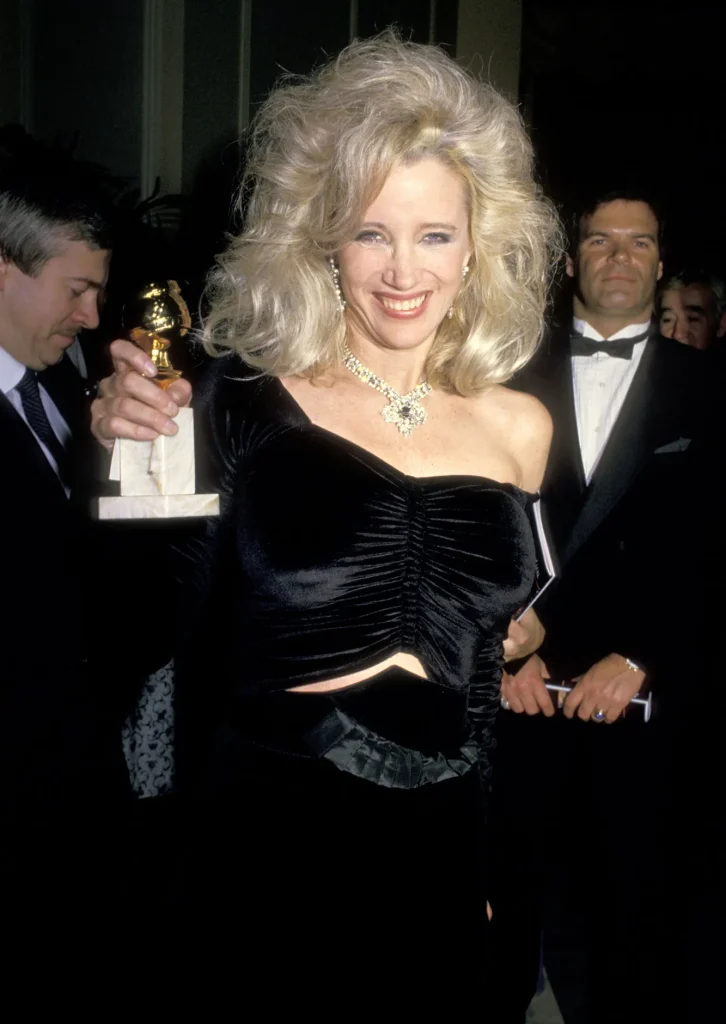
Though she didn’t win the Oscar that year, losing to Cher for Moonstruck, Sally Kirkland had already made history. She had done what few others could: captured the attention of Hollywood on her own terms. In interviews after the ceremony, she spoke not with bitterness but with gratitude. “Recognition isn’t the goal,” she said. “Connection is. If a performance reaches people, that’s the reward.”
Her career after Anna was as unpredictable as she was. Kirkland continued acting in both film and television, appearing in The Haunted, Revenge of the Nerds III, The Player, and EdTV, among dozens of other titles. She also became a familiar face on soap operas like Valley of the Dolls and Days of Our Lives, where her charisma and vulnerability drew in viewers.
But Sally Kirkland was never content to simply act. She wanted to inspire others — to teach, to mentor, to heal. In the 1990s and 2000s, she became an acting teacher and spiritual counselor, known for her deep empathy and unfiltered honesty. She guided young performers to embrace their truth, often reminding them that art without vulnerability was meaningless. “The work isn’t about pretending,” she once told her students. “It’s about revealing.”
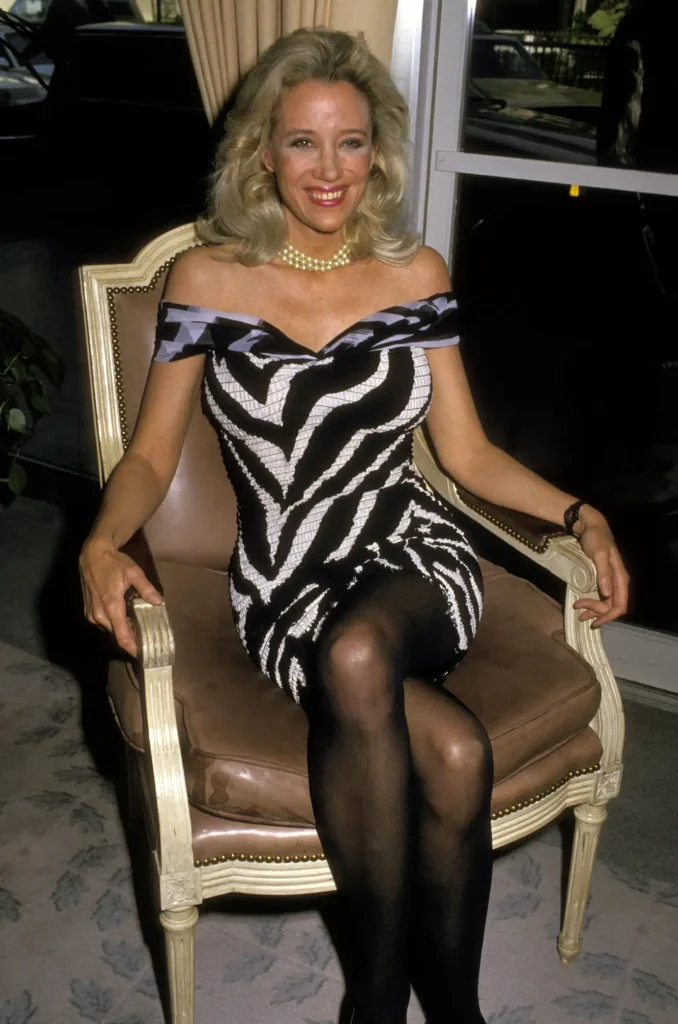
She also became an outspoken advocate for self-expression, body positivity, and spiritual awareness, integrating meditation and holistic healing into her teaching methods. Friends and students described her as magnetic, compassionate, and larger than life — a woman who could command a room one moment and weep with a student the next.
Over the decades, Kirkland’s career expanded into more than 250 credits across film and television. But numbers could never fully capture her essence. What defined Sally Kirkland was her humanity — the raw, unguarded emotion she brought to everything she did. She was never afraid to expose her flaws, to let the world see her struggles as much as her triumphs. That vulnerability became her trademark, earning her a reputation as one of the most authentic performers of her generation.
In her later years, Kirkland continued to work steadily, appearing in indie films, guest television roles, and documentaries that explored her remarkable life and career. She was also a regular presence on the Los Angeles arts scene, attending film festivals and charity events well into her 80s. Her love for her craft never faded, even as the industry evolved around her.
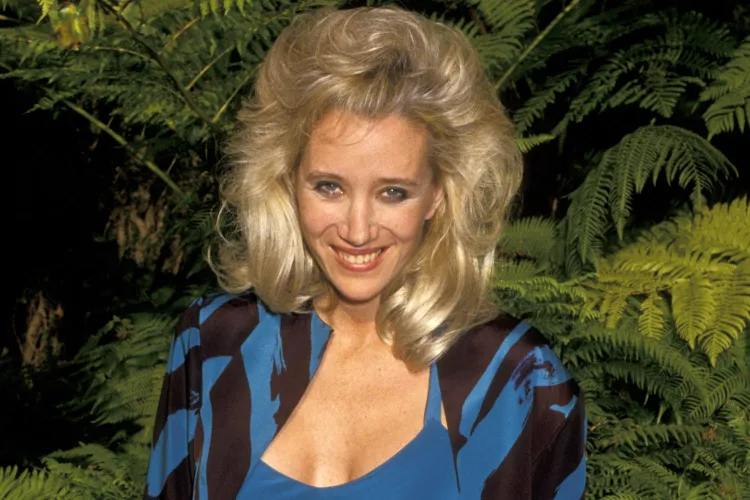
For those who knew her personally, Sally Kirkland was more than an actress — she was a force of nature. She had a generosity of spirit that made everyone feel seen. Her laughter filled rooms; her advice often lingered long after conversations ended. Despite facing health challenges in her later years, she never stopped pursuing what she loved most: storytelling.
Tributes have poured in from across Hollywood since the news of her passing. Fellow actors, students, and longtime friends have described her as “fearless,” “magnetic,” and “a pioneer for independent artists.” Many remembered her as one of the first major actresses to champion authenticity in performance, paving the way for later generations who valued emotional honesty over perfection.
For Kirkland, acting was always about connection — a way to bridge the gap between souls. In one of her last interviews, she reflected on her life’s work with characteristic humility. “I’ve lived a life of extremes,” she said. “Highs and lows, laughter and tears. But the one constant has been love — love for people, love for the craft, love for the journey.”
Her words now feel like a fitting epitaph for a woman who spent her life chasing meaning through art. Sally Kirkland never played it safe — not in her roles, not in her career, and certainly not in her heart. She believed in art that moved people, and in that belief, she became timeless.
She is survived by countless friends, colleagues, and students whose lives she touched, both on and off the screen. Her legacy is one of courage, creativity, and compassion — a reminder that the truest artists are those who live with their hearts fully open.
As Hollywood says goodbye, the light Sally Kirkland brought to her work will continue to shine in the performances she left behind — fierce, tender, and utterly unforgettable.
